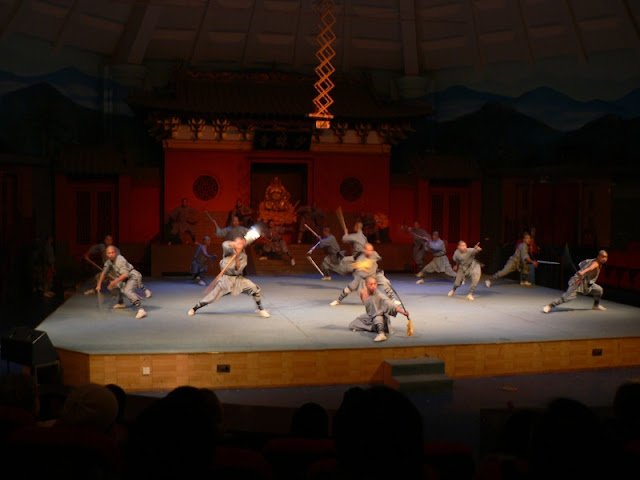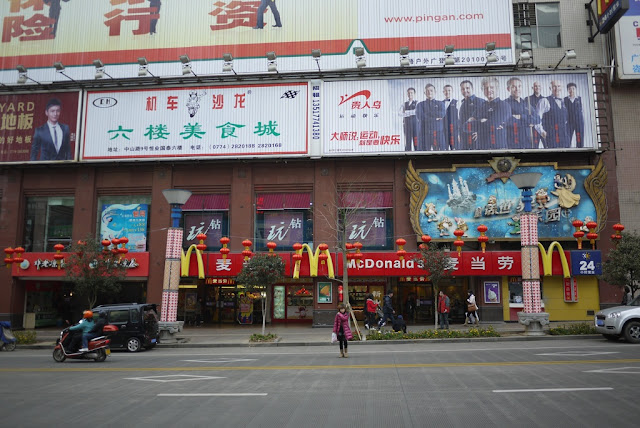I've received some comments and questions on my series of articles "Google, China, and Chinese College Students". I'd like to address some of them and clarify several related issues.
Am I saying Google didn't/doesn't know the points I am raising?
Not at all. I simply don't know what research Google has conducted or collected. I don't know whether Google was or is now aware of the dynamics I described in my posts (or even if they believe what I've found is "real"). It is entirely possible they were fully aware and due to other concerns felt what they did was in their best interests -- whether short or long term. My concluding comments on the value of knowing your audience were not intended to necessarily mean Google did not know its audience in China. It was intended for any of those who make or evaluate similar decisions, whether business, political, etc., without enough understanding of key audiences. For example, I believe there are many people in the US who cheered on Hillary Clinton's speech who may have felt otherwise if they had understood how it would likely be received by many in China. I think you can find similar misunderstandings for many other international events as well.
I should also add that based on what I know I do think that Hillary Clinton's speech was a mistake for the US government if one of their goals was "reaching" the Chinese people (or not pushing them away). However, I have no idea if Google advocated for or welcomed the speech.
Am I saying Google could have done more "damage control" after Hillary Clinton's speech?
In the piece it was not my intent to say anything about this one way or another.
Assuming Google recognized the impact of the speech and desired to quickly repair any damage to its image, Google faced a daunting situation since not only did Google need to manage its image in China but also in the US where its every move received much press. It would have been difficult for Google to distance itself from the speech without contradicting itself and/or raising eyebrows in the US. Furthermore, since at the time of the speech they hadn't yet committed to staying in China, it may have been difficult for them to directly or indirectly send the message, "We're still on your side" to the Chinese students who were turned off by the speech. Finally, any such message sent may have confused people who were unaware of the issue or who had never thought of themselves as being aligned with Google in any significant fashion. Regardless, once Google established it would continue offering services tailored for users in China I believe opportunities existed for Google to effectively communicate their continued commitment in a way that would be positively received by many in China. If fact, the continued availability of services itself may play a role in doing so.
Do I think the students who perceived Google as having "left China" still feel that way?
That's an excellent question and something I've been exploring. It is not something I feel ready to address.
When I wrote that Google "will need to take particular care to mend and expand the previous relationships it had with its users in China" was I implying it had damaged relationships with all of its users?
No. The statement was intended to apply to the students who had become disillusioned with Google. There are other users of Google who this does not apply to. For example, many were unaware or unconcerned about Google's actions in China last year. While Google likely hopes to "expand" relationships with any such users it does not necessarily have any need to "mend" those relationships.
Are the two specific possibilities I highlighted for potentially explaining Google's reported decline relative to Baidu the most important or most likely reasons?
As I mentioned in the piece I believe there are several possibilities. To refresh, the two possibilities I focused on were a) remaining committed users dropped off after not seeing any (or enough) significant action from Google and b) students' changed impressions of Google may have had an effect on the perceived usability/usefulness of Google's services.
I chose to focus on these two possibilities because they related to my previous discussion of the impact of the United States' and Google's actions on students. However, I think there are almost certainly other reasons that play a critical role in fully understanding any change in Google's performance in China. As I mentioned in the piece, many students were not concerned about or aware of the dispute between Google and China. Any role such users played in any decline of Google relative to Baidu is less likely to be explained by the two possibilities I presented, and it is possible such users account for a large amount of any decline. Also, Google's users in China certainly are not limited to college students. However, any impact of such users was outside the scope of my piece.
An example of a possible contributing factor I did not discuss is users' perceptions of Baidu's services. However, this was a not a topic I felt I had explored sufficiently to comfortably address and it did not appear to directly relate to the key issues of the piece.
Given the above points, I simply make no claim as to how much of the decline could be accounted for by the two possibilities I raised.
And finally...
I realize my posts could lead to some impressions I did not want to convey. I hope I've now been able to clarify and add to some key points regarding what I think is a very important and fascinating topic.
[Additional Note: I've since written a briefer version of the posts which focuses on the impact of Hillary Clinton's speech.]
Am I saying Google didn't/doesn't know the points I am raising?
Not at all. I simply don't know what research Google has conducted or collected. I don't know whether Google was or is now aware of the dynamics I described in my posts (or even if they believe what I've found is "real"). It is entirely possible they were fully aware and due to other concerns felt what they did was in their best interests -- whether short or long term. My concluding comments on the value of knowing your audience were not intended to necessarily mean Google did not know its audience in China. It was intended for any of those who make or evaluate similar decisions, whether business, political, etc., without enough understanding of key audiences. For example, I believe there are many people in the US who cheered on Hillary Clinton's speech who may have felt otherwise if they had understood how it would likely be received by many in China. I think you can find similar misunderstandings for many other international events as well.
I should also add that based on what I know I do think that Hillary Clinton's speech was a mistake for the US government if one of their goals was "reaching" the Chinese people (or not pushing them away). However, I have no idea if Google advocated for or welcomed the speech.
Am I saying Google could have done more "damage control" after Hillary Clinton's speech?
In the piece it was not my intent to say anything about this one way or another.
Assuming Google recognized the impact of the speech and desired to quickly repair any damage to its image, Google faced a daunting situation since not only did Google need to manage its image in China but also in the US where its every move received much press. It would have been difficult for Google to distance itself from the speech without contradicting itself and/or raising eyebrows in the US. Furthermore, since at the time of the speech they hadn't yet committed to staying in China, it may have been difficult for them to directly or indirectly send the message, "We're still on your side" to the Chinese students who were turned off by the speech. Finally, any such message sent may have confused people who were unaware of the issue or who had never thought of themselves as being aligned with Google in any significant fashion. Regardless, once Google established it would continue offering services tailored for users in China I believe opportunities existed for Google to effectively communicate their continued commitment in a way that would be positively received by many in China. If fact, the continued availability of services itself may play a role in doing so.
Do I think the students who perceived Google as having "left China" still feel that way?
That's an excellent question and something I've been exploring. It is not something I feel ready to address.
When I wrote that Google "will need to take particular care to mend and expand the previous relationships it had with its users in China" was I implying it had damaged relationships with all of its users?
No. The statement was intended to apply to the students who had become disillusioned with Google. There are other users of Google who this does not apply to. For example, many were unaware or unconcerned about Google's actions in China last year. While Google likely hopes to "expand" relationships with any such users it does not necessarily have any need to "mend" those relationships.
Are the two specific possibilities I highlighted for potentially explaining Google's reported decline relative to Baidu the most important or most likely reasons?
As I mentioned in the piece I believe there are several possibilities. To refresh, the two possibilities I focused on were a) remaining committed users dropped off after not seeing any (or enough) significant action from Google and b) students' changed impressions of Google may have had an effect on the perceived usability/usefulness of Google's services.
I chose to focus on these two possibilities because they related to my previous discussion of the impact of the United States' and Google's actions on students. However, I think there are almost certainly other reasons that play a critical role in fully understanding any change in Google's performance in China. As I mentioned in the piece, many students were not concerned about or aware of the dispute between Google and China. Any role such users played in any decline of Google relative to Baidu is less likely to be explained by the two possibilities I presented, and it is possible such users account for a large amount of any decline. Also, Google's users in China certainly are not limited to college students. However, any impact of such users was outside the scope of my piece.
An example of a possible contributing factor I did not discuss is users' perceptions of Baidu's services. However, this was a not a topic I felt I had explored sufficiently to comfortably address and it did not appear to directly relate to the key issues of the piece.
Given the above points, I simply make no claim as to how much of the decline could be accounted for by the two possibilities I raised.
And finally...
I realize my posts could lead to some impressions I did not want to convey. I hope I've now been able to clarify and add to some key points regarding what I think is a very important and fascinating topic.
[Additional Note: I've since written a briefer version of the posts which focuses on the impact of Hillary Clinton's speech.]




























